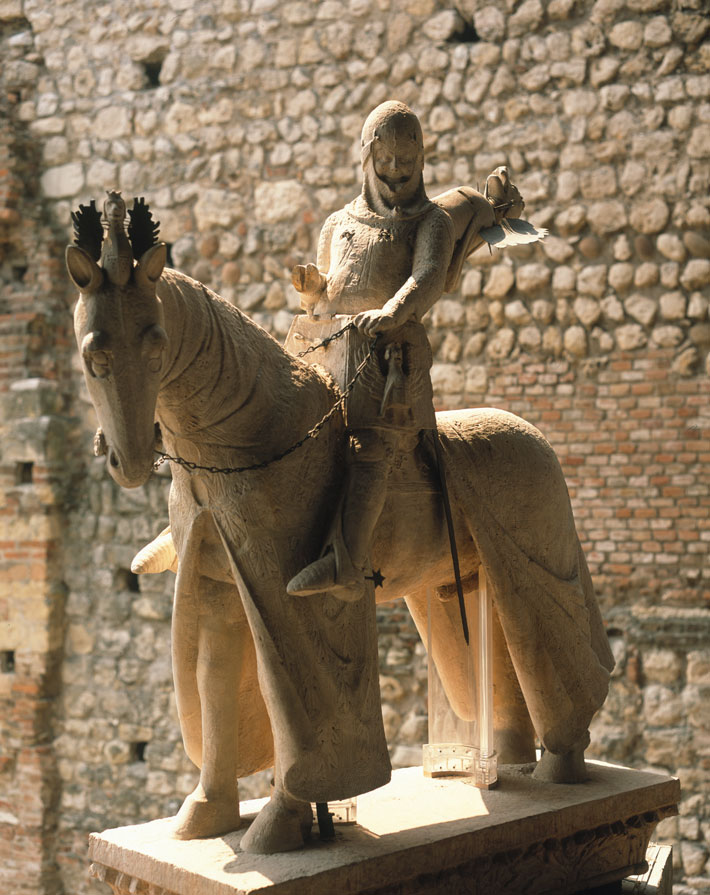Cause of Death
May/June 2015
 On July 18, 1329, Cangrande della Scala, the ruler of Verona, triumphantly marched through Treviso after conquering the rival city. Four days later he was dead, purportedly having drunk from a polluted spring. But the true cause of his death has been a nearly 700-year-long mystery, replete with rumors and accusations of poisoning. Since 2004, when Cangrande’s body was exhumed from its tomb in the church of Santa Maria Antiqua in Verona, Italian researchers have been conducting a multidisciplinary examination of the remains, including archaeological, palaeopathological, toxicological, and palynological analysis. Their recent findings suggest that the Veronese prince was a victim of foul play.
On July 18, 1329, Cangrande della Scala, the ruler of Verona, triumphantly marched through Treviso after conquering the rival city. Four days later he was dead, purportedly having drunk from a polluted spring. But the true cause of his death has been a nearly 700-year-long mystery, replete with rumors and accusations of poisoning. Since 2004, when Cangrande’s body was exhumed from its tomb in the church of Santa Maria Antiqua in Verona, Italian researchers have been conducting a multidisciplinary examination of the remains, including archaeological, palaeopathological, toxicological, and palynological analysis. Their recent findings suggest that the Veronese prince was a victim of foul play.
Pollen samples taken from Cangrande’s digestive system, as well as samples from his liver and hair, unexpectedly revealed the presence of digitalis, commonly known as foxglove. Foxglove leaves are fatal when consumed in certain quantities, and Cangrande’s remains exhibited lethal doses of its toxins. Historical sources indicate that in the days prior to his death, Cangrande suffered from fever, vomiting, and diarrhea, all of which are consistent with foxglove poisoning. Although researchers can’t count out the possibility that Cangrande accidentally consumed the plant, they believe the demise of such a healthy and relatively young man was the result of deliberate poisoning. In addition to the foxglove, the palynological tests also indicated traces of chamomile and black mulberry, suggesting that Cangrande was served a decoction of various plants to mask the poison. The perpetrators of the crime remain unknown, though some suggest responsibility lies with rival Italian rulers, his own heirs, or even his personal physician, who is rumored to have been executed shortly after Cangrande’s death.